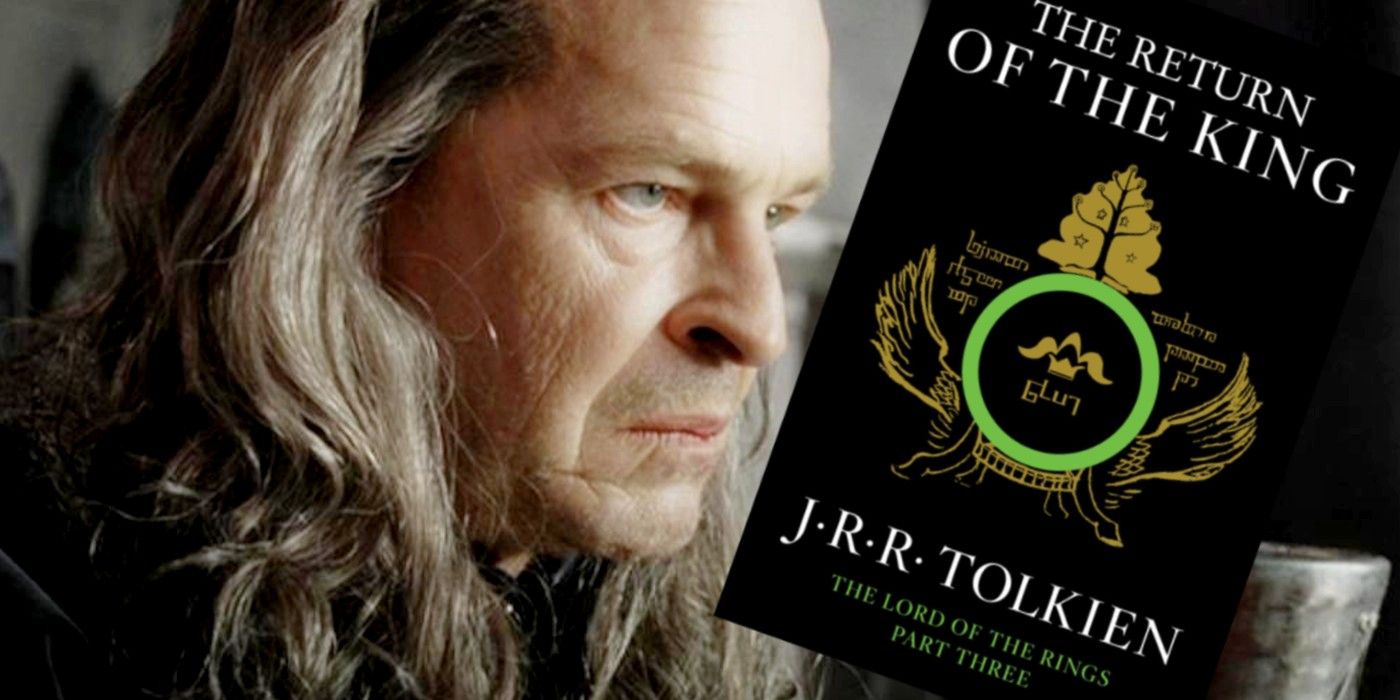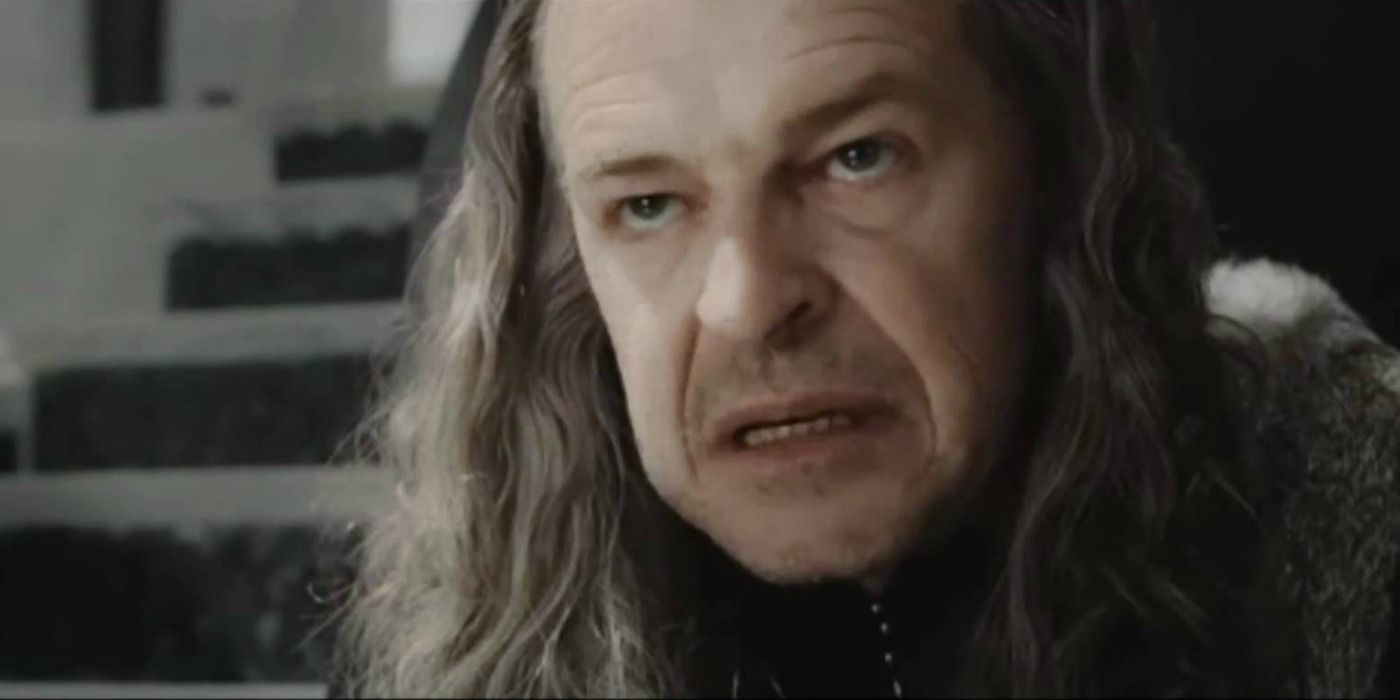Denethor's Lord of the Rings death played out much better in the original books. First introduced in The Return of the King, Denethor is the ruling Steward of Gondor, and while not as far gone as Saruman or the Wormtongue-whispered King of Rohan, Denethor's use of a palantir allows Sauron's dark influence to creep in. This corruption leaves Denethor disenchanted and unwilling to fight, although his commitment to Gondor remains steadfast. The imminent arrival of the true successor to the throne and the grief of losing his son, Boromir, add further strain to an already weathered Denethor, pushing him into the clutches of madness.
Portrayed by John Noble in Peter Jackson's movie adaptation of The Return of the King, the characterization of Denethor is altered somewhat from the books. On screen, the Steward is more outwardly evil, working against Gandalf and the Fellowship out of spite, rather than simply falling into despair and hopelessness as he does in Tolkien's original novels. Another aspect of Denethor's story Jackson changes is his death scene. In both versions of The Lord of the Rings, a deeply-troubled Denethor wrongly believes his second son, Faramir, is on the verge of death, and prepares a pyre to lay himself and his son to rest. This is where the film and book take diverging paths.
Originally, Tolkien wrote that the maddened Denethor set himself and Faramir upon the flames, but the latter was rescued thanks to Gandalf and Beregond (Faramir's loyal captain) who pulled him free before the fire took hold. Denethor remained on the pyre and was killed of his own volition. In Peter Jackson's movie trilogy, Gandalf confronts Denethor and knocks him clean off the lit pyre with a lance, allowing Pippin to get Faramir to safety. Denethor attacks the Hobbit, so Gandalf has Shadowfax kick Denethor back onto the pyre where the Steward sees his stirring son and experiences a rare moment of clarity. Suddenly finding himself alight and in considerable pain, Denethor runs to the edge of Minas Tirith and throws himself dramatically to the plains below.
Denethor's demise should be a serious scene, but there's an unintentionally comic flavor in Jackson's telling. The rigmarole of knocking Denethor off the pyre and then back onto it feels a touch farcical, and the blow from Shadowfax looks particularly strange. The horse rears up to the camera in one shot, then Denethor flings himself enthusiastically backwards in the next, adding an element of slapstick where it really has no place. The audience then see a flaming, flailing Denethor run an impressive distance for someone now fully engulfed in flames and flop meekly off the edge.
In some ways, it's easy to see why Jackson made the changes he did. Denethor's on-screen death allows for a more action-orientated sequence where Gandalf gets to knock the bad guy about and Pippin can play the hero, but the changes perhaps looked better in the script than the finished scene. In contrast, Denethor's book death is both simpler and far more effective. There's the breaking of the white staff, acknowledging the time of Stewards has ended, and then the character succumbs to the fate he chose for himself, rather than taking part in a comedic back and forth between fire, wizard, horse and a big drop that really should've had a guard rail around it. For all his faults, Denethor has served diligently, but there's very little sense of this on screen, with the character merely taking the guise of a power-ridden madman.
In many ways, the differences in Denethor's death reflect the more general changes Peter Jackson's movie made to the character. While unquestionably dark and tragic, Tolkien's original version of the scene is far more dignified; Denethor makes his choice and dies by the decision he made. This fits with Tolkien's portrayal of Denethor, who is both wiser and stronger in the book, even able to resist the power of Sauron to a limited degree. Where movie Denethor is cowardly, weak and sinister, his less auspicious, less ceremonial death ensures the Steward of Gondor departs with much less pride. While the reasoning behind Jackson's remix might be solid, Denethor's final scene isn't a highlight of the iconic Lord of the Rings trilogy.


